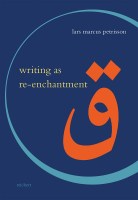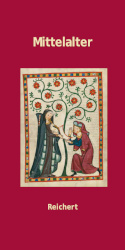Titelsuche
Writing as Re-enchantment: The Arabic and Turkish Novel’s Neo-Sufi Response to Secular Modernity
Kurze Beschreibung
This study examines the revival of Sufism in the Arabic and Turkish novel during the second half of the 20th century. A picture is drawn where Sufism forms a main source of literary inspiration and becomes a mode to establish continuity with the past. Sufism is in this context not solely a passively transmitted cultural artifact; it quite the contrary becomes a major instrument to construct identity and meaning to a post-industrial society. In this respect, the act of writing becomes prayer of a sort; storytelling enables the Self to rest from the dreary political realities of authoritarian modernist ideologies. Thus, writing, in contrast to reason-driven, materialist, modernity becomes meaningful and enables the Self to connect with something beyond immanent reality; in one word, writing becomes “re-enchantment”.Ausführliche Beschreibung
For a more profound understand of present-day Middle East, a closer look at the vivid literary debates on Identity in the Arab world and Turkey are beneficial and eligible. A recurring theme in these debates has been the contrasting juxtaposition between European modernity and local cultural tradition. Is total rejection of the own past necessary to become true modernists? If not, how can one relate to tradition, avoiding taking a forfeited, reactionary position?
This thesis will examine the revival of Islamic mysticism in the 20th century, a significant cornerstone to both cultural traditions, in the contemporary Arabic and Turkish novel. To what extend could the turn to Islamic mysticism in both Near Eastern literatures be seen a process of critical Self-examination? Is the appropriation of mystical language, tropes and philosophy by contemporary Arabic and Turkish literati an attempt to reconcile with the past and overcome cultural paradoxes? Or is this phenomenon rather to be seen as a regional manifestation of a postmodern “Re-enchantment” that, aligned with critics of modernity such as Weber, Heidegger and T.S Eliot, seek to heal a disenchanted world and provide endowment with meaning to the present?
These questions will be examined on the basis of a selected number of contemporary Arabic and Turkish novels. Departing from the chosen examples, a picture is drawn where mysticism forms a main source of literary inspiration and becomes a mode to establish continuity with the past. Islamic mysticism is in this context not solely a passively transmitted cultural artifact; it quite the contrary becomes a major instrument to construct Identity and meaning to a post-industrial society. In this respect the act of writing becomes prayer of a sort; storytelling enables the Self to rest from the dreary political realities of authoritarian modernist ideologies. Thus, writing, in contrast to reason-driven, materialist, modernity becomes meaningful, enables the Self to connect with something beyond immanent reality; in one word, writing becomes “re-enchantment”. In this context, the turn to mysticism paradoxically enables the contemporary Arabic and Turkish novel to merge with universalism and world literature.




 Inhaltsverzeichnis
Inhaltsverzeichnis

 Neuerscheinungen 2023/2024
Neuerscheinungen 2023/2024
 Gesamtverzeichnis 2023/2024
Gesamtverzeichnis 2023/2024
 Katalog Oriental Studies & Linguistics
Katalog Oriental Studies & Linguistics
 Mittelalter
Mittelalter
 Deutsche Inschriften
Deutsche Inschriften
 Musiktherapie
Musiktherapie
 Literaturen im Kontext
Literaturen im Kontext